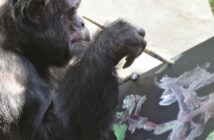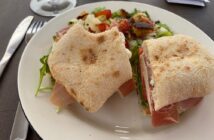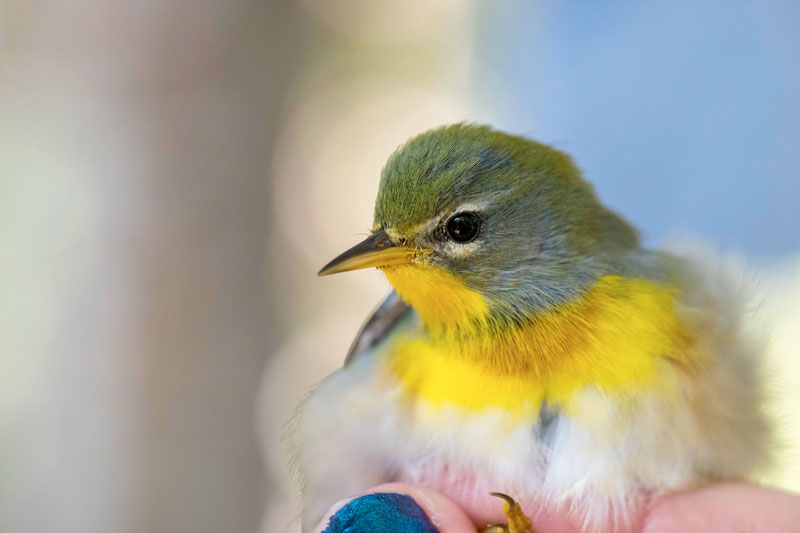
Never give up listening to the sounds of birds. John James Audubon
South Miami neighbor, Tropical Audubon Society announces a new collaboration with the Cape Florida Banding Station. Tropical is integrating the activities and research efforts of the Banding Station into its organizational programming.
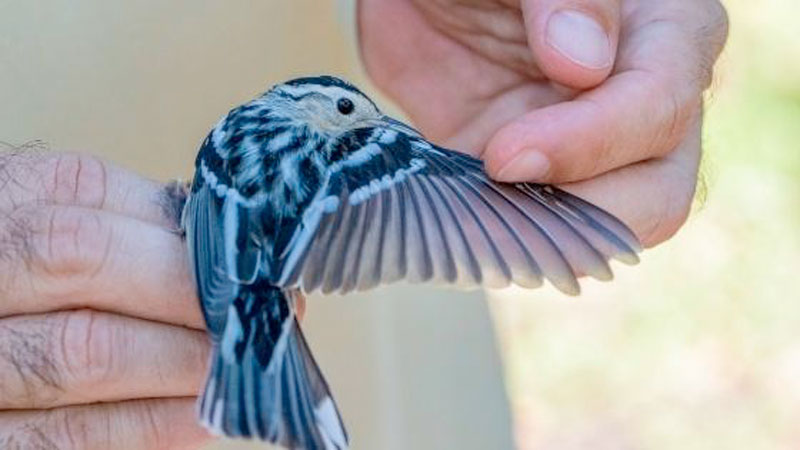
Located at the site of the historic “Doc” Thomas House in High Pines and just about a block away from South Miami’s Town Center, Tropical remains a favorite of local birders and historians. The Banding Station monitors migratory songbirds in the South Florida region and has provided one of the longest running community science programs for almost
20 years.
Bill Baggs Cape Florida State Park is the Station’s location. Director and cofounder, Michelle Davis, who holds a PSM in Environmental Policy and Management from FIU was recently hired by Tropical to continue her successful management of the Station and to enhance Tropical’s avian advocacy mission. The joint effort will strengthen the Station’s breadth, outreach, and research capabilities.
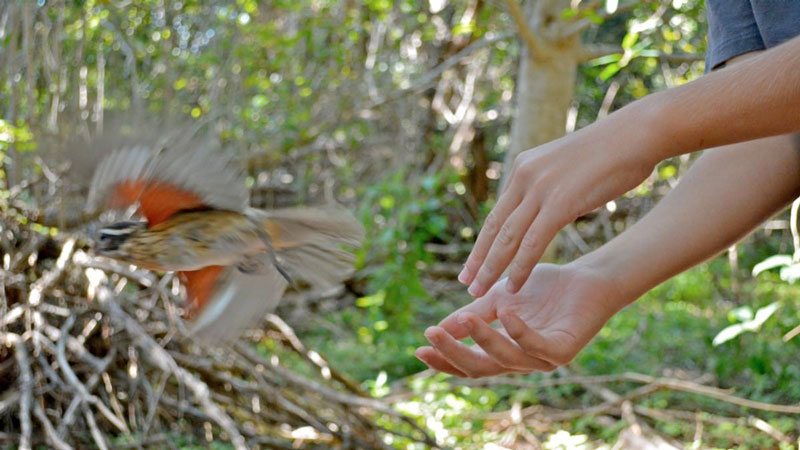
Executive Director of Tropical Audubon Society, Paola Ferreira says of the program, “We want to build upon the long-term monitoring data that highlights the importance of protecting native habitat for migrating songbirds, especially within Miami-Dade’s urban areas. Such information is also crucial to understanding impacts of climate change on migratory birds.”
Our region is a key stopover for migrant songbirds using the Atlantic Flyway in spring and fall. A great many stop to refuel at Bill Baggs Cape Florida State Park, a natural oasis at the tip of Key Biscayne. Station volunteers band these neotropical songsters during Fall Migration from mid-August through the first week of November.
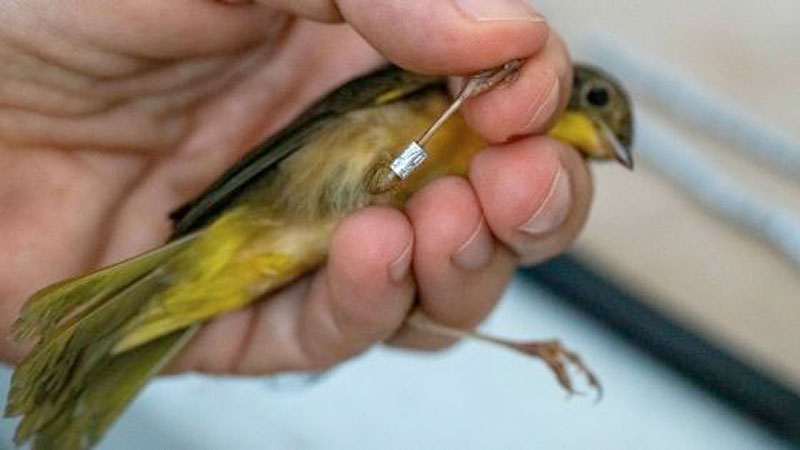
Photo by Frederico Acevedo
Bird banding is the practice of capturing a bird, placing a uniquely numbered aluminum band around its leg and then releasing it. Banding enables a bird to then be identified when it is recaptured. More importantly, banding enables researchers to study bird migration, range, how long birds live and the impacts of climate change over time. When a bird is being banded, physical information can also be collected, including sex, age, weight and size. One of the most important measurements is the “fat load” that an individual bird carries. Fat is the fuel burned in the long migration, so birds need to use “stopover” habitats along their way for refueling and rest. After a few minutes of assessment in a gentle, humane manner, the bird is carefully released to continue its migratory journey.
The ecological needs of migratory songbirds shift among breeding, wintering, and en-route grounds. The habitats are influenced in different ways by climate change. Data from the Station continues to address migration ecology, mercury levels in songbirds, climate changed effects, and new modeling frameworks, among others. The Station’s work illuminates the importance of protecting relatively small pockets of native habitat for migrating songbirds in Southeast Florida.
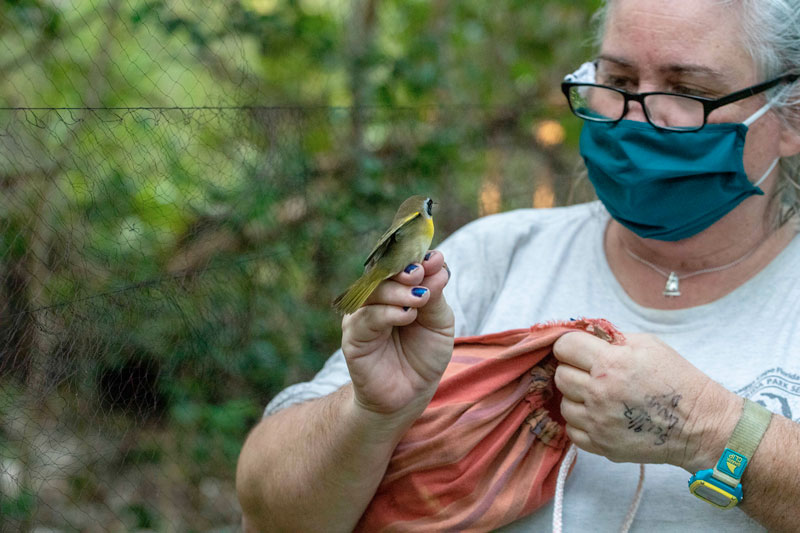
The Station provides crucial data used by conservation leaders and the public. The work relies heavily on a community of dedicated and newly arrived volunteers, many of whom have participated in the program for years. By working with Tropical, the banding program is augmented by the addition of Tropical’s network of partners, collaborators, and cohorts. Also, by combining forces, more volunteers will become available, aiding the Station as it seeks to increase local and international conservation efforts. This educational project directly serves a diverse volunteer community, park managers, middle, high school and graduate students, scientists (South Florida, North and South America), local and new birders, national birding and conservation communities, the general public, and 114 species of migratory birds. Currently, the Station also collaborates with Florida International University, the University of Miami, and Florida Atlantic University.
Established as a National Audubon Society Chapter in 1947, Tropical Audubon Society traces its roots to the 1915 Coconut Grove Audubon Society, the first in then Dade County. In service to its mission, programming concentrates on conservation, education and advocacy. Miami-Dade County is the core geographic area in which the conservation of Biscayne Bay, Florida Bay, and the Everglades are targeted. Advocacy extends to these areas as well as the need for Smart Growth in our ecologically-sensitive county. The organization has a long and successful history of educating the general public, community organizations, and school groups. It is dedicated to strengthening partnerships with school, college, and adult students in underrepresented communities within the county. TAS is located on land donated to the organization by “Doc” Thomas; their headquarters is Thomas’s charming historic home.
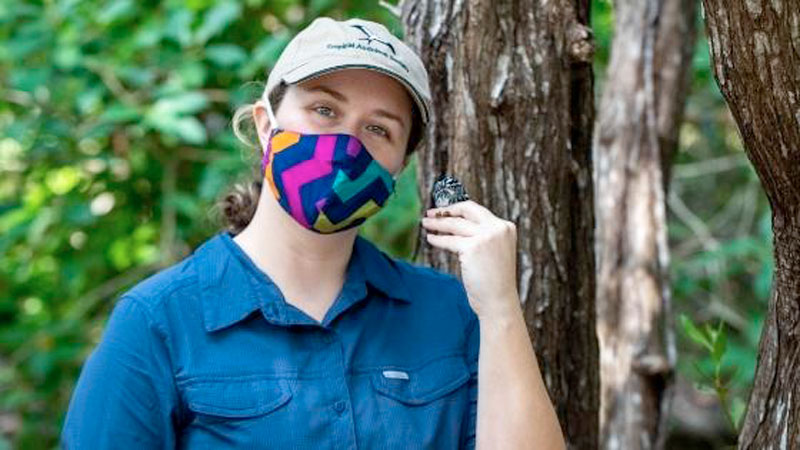
Tropical Audubon Society is located at 5530 Sunset Drive, 33143. FMI for TAS: 305-667-7337; for Cape Florida Banding Station: https://capefloridabandingstation.wordpress.com/; for programming information: Michelle Davis at [email protected]
A true conservationist is a man who knows that the world is not given to him by his fathers, but borrowed from his children. John James Audubon
Donna Shelley


